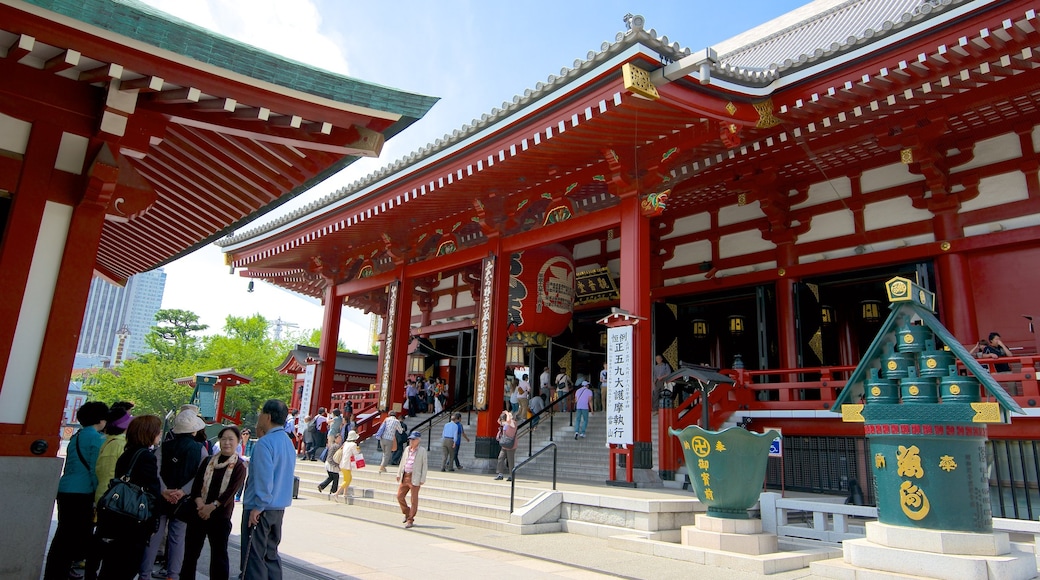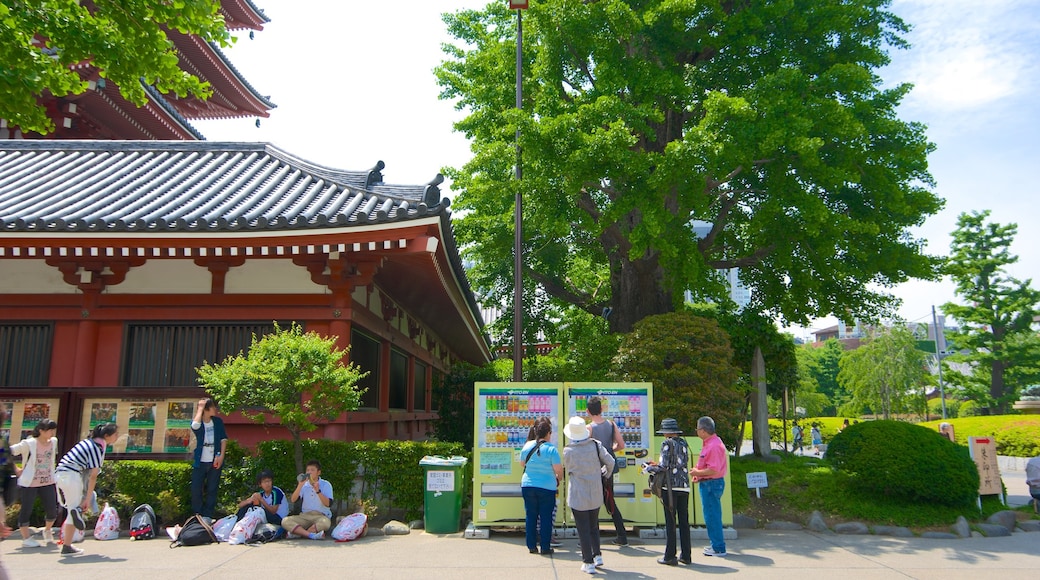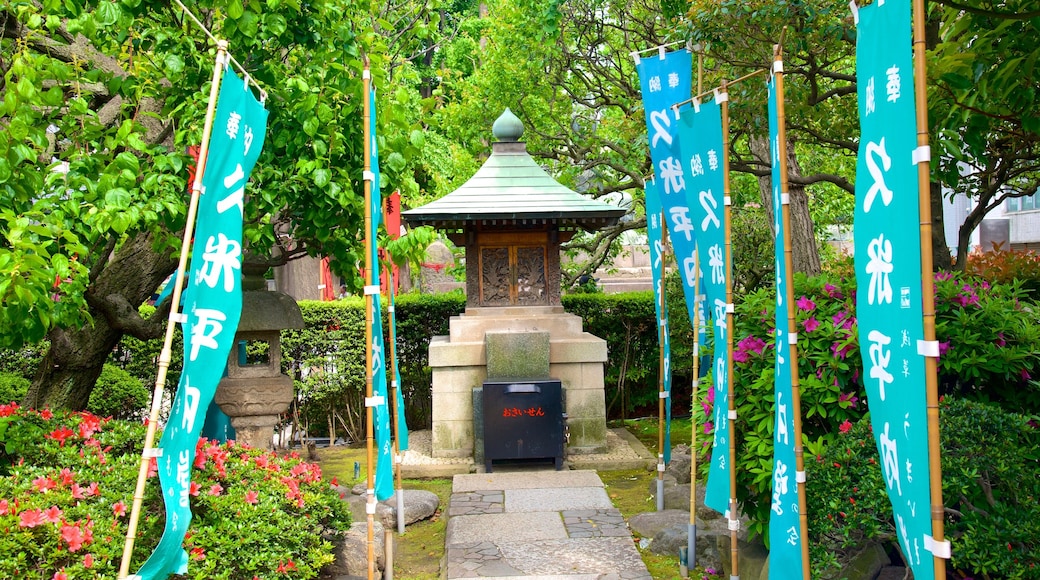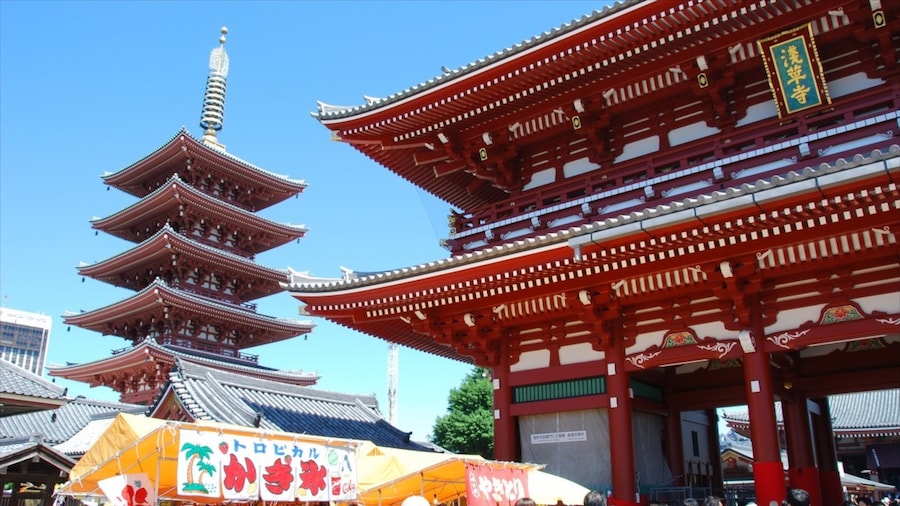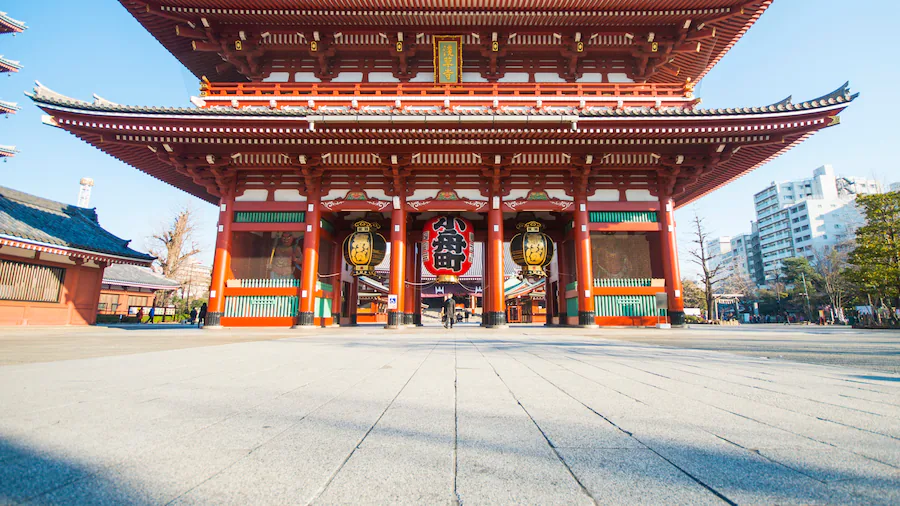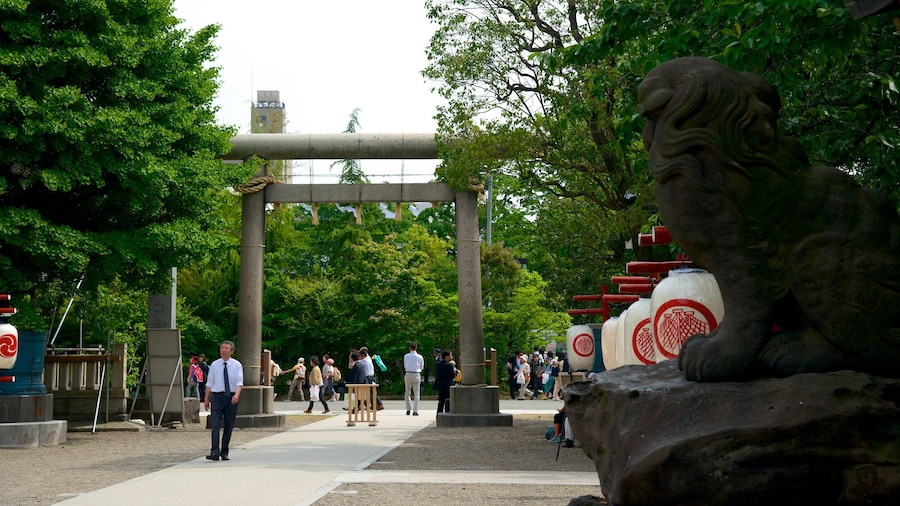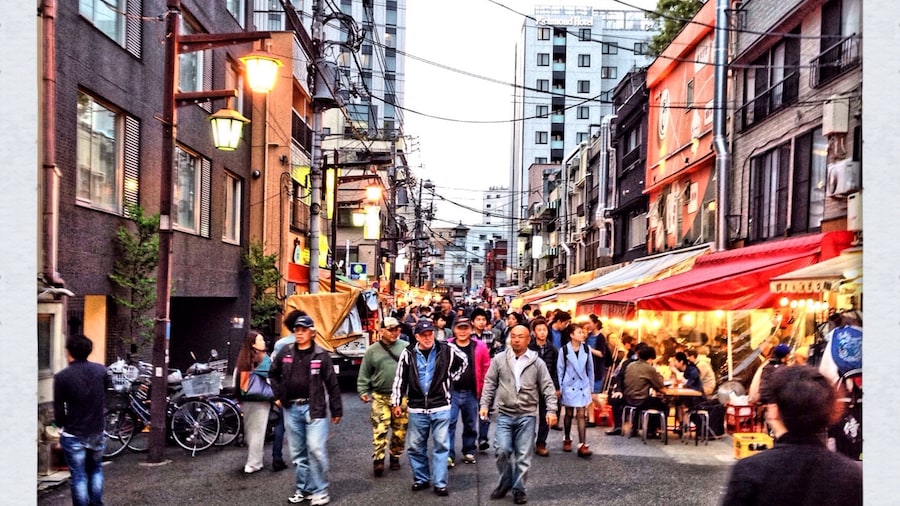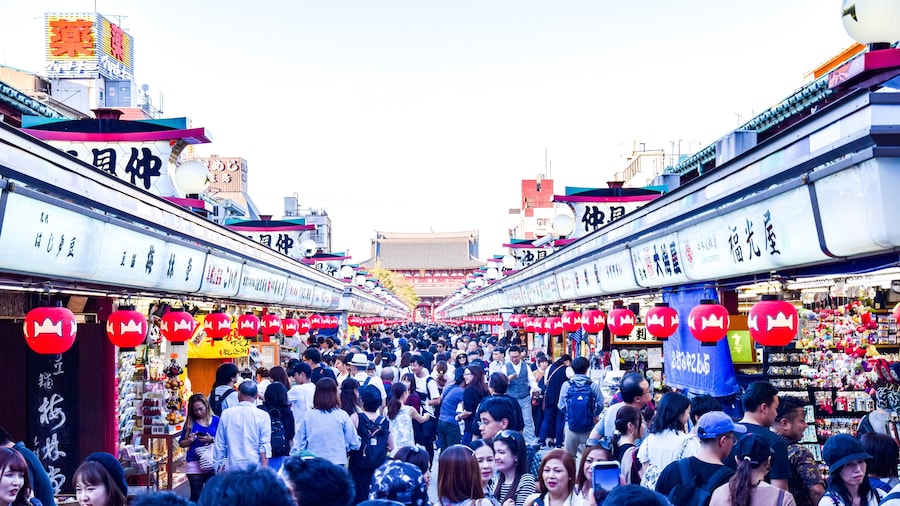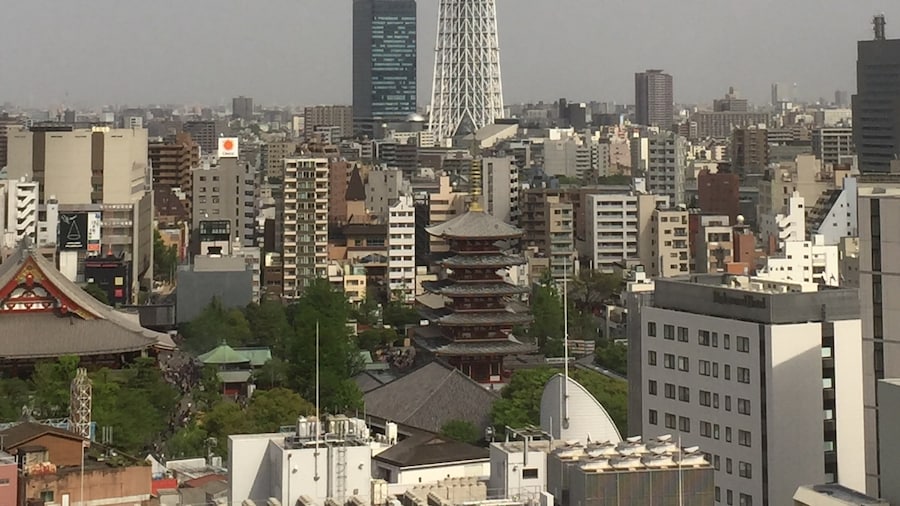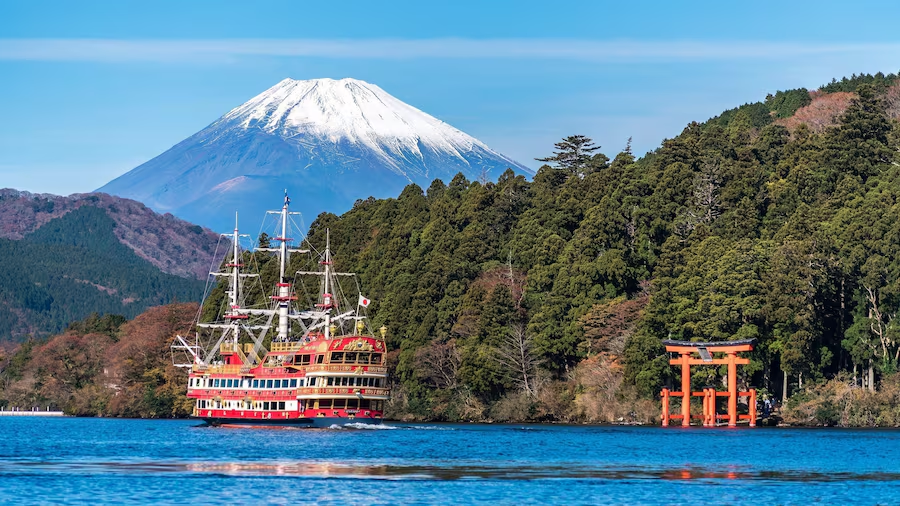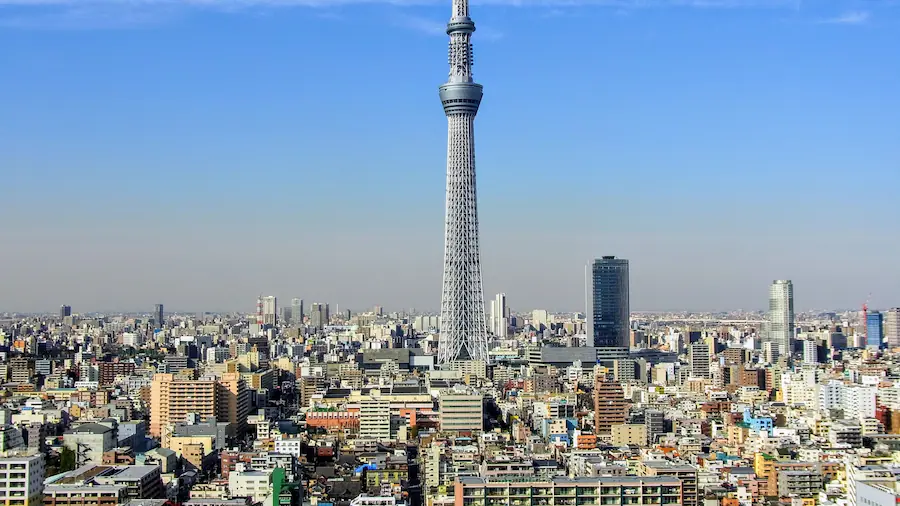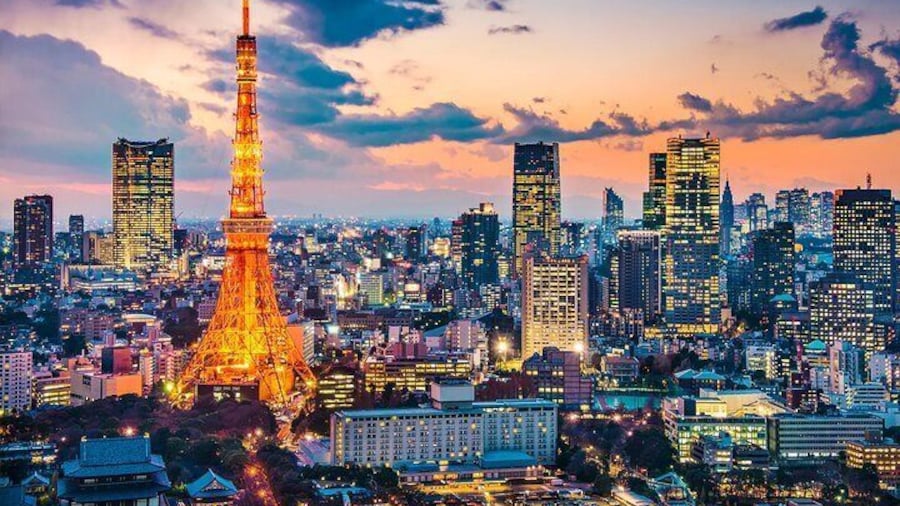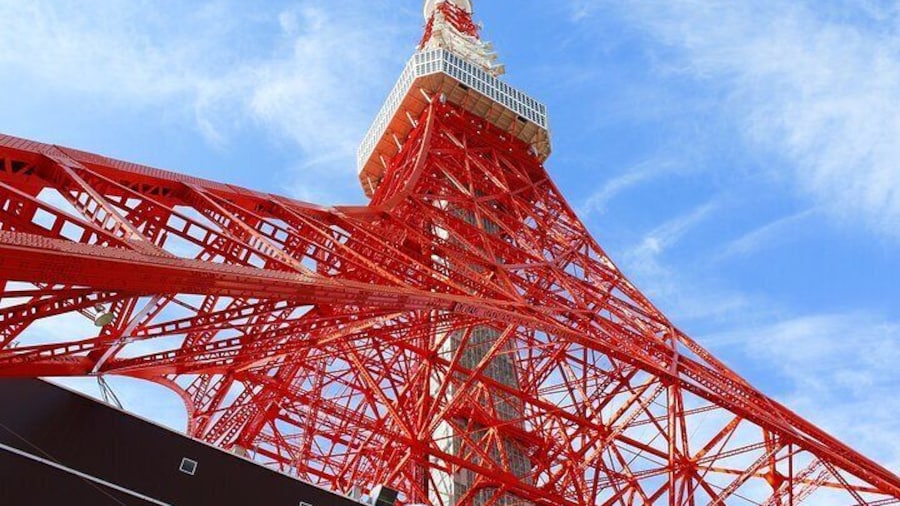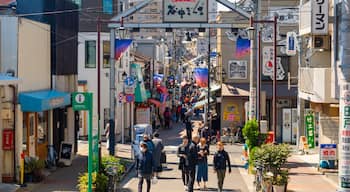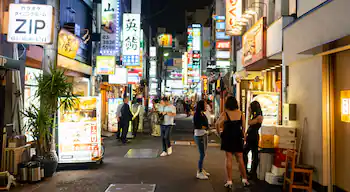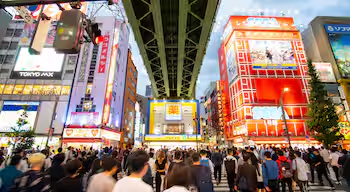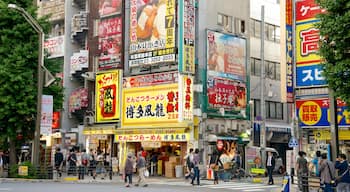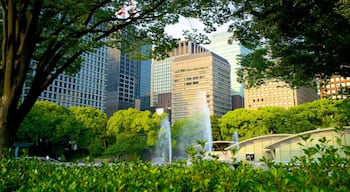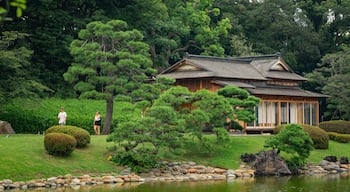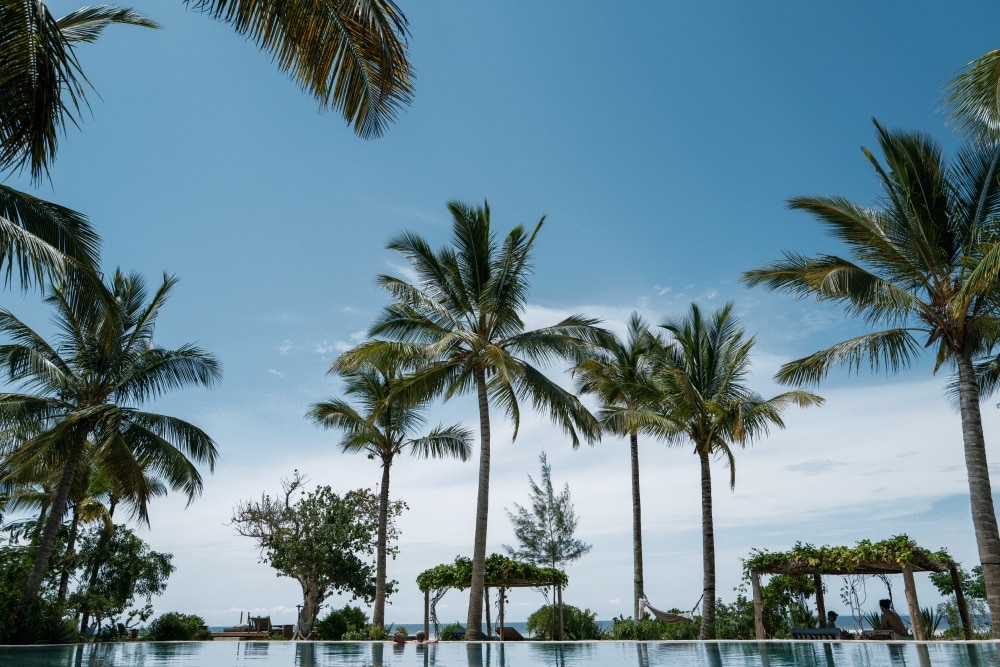Follow the footsteps of centuries of worshippers along a street filled with traditional snack stalls and through the gates of one of Tokyo’s most popular temples.
Asakusa’s gentle charm contrasts against the typically hectic atmosphere of modern Tokyo. Many of the buildings you’ll see here are post-World War II reconstructions however, this district’s long history is still evident in its old-world pace. Visit the temple Sensō-ji, one of Asakusa’s most famous attractions, known for its distinctive red colouring and status as Tokyo’s oldest temple.
During the Edo Period, this area was considered to be outside Tokyo’s city limits, making it an ideal setting for a red light district. Note that after spending decades as one of Tokyo’s most popular entertainment areas, much of the original Asakusa was destroyed during World War II.
The traditional route to Sensō-ji is via Nakamise Street, an attraction in itself. Enter Nakamise Street through the imposing Kaminarimon, or “Thunder Gate,” notable for its enormous red paper lantern. Vendors on this famous shopping street have sold snacks and souvenirs to temple visitors for centuries. Here, find folding fans, yukata robes and other traditional souvenirs.
Sensō-ji, dedicated to the bodhisattva of compassion, attracts more than 30 million visitors annually. Visit in the early morning to enjoy this spectacular temple without the distraction of crowds. The Buddhist temple is also quieter in the evening and looks particularly lovely when lit up after dark.
While you’re in Asakusa, sample Tokyo street food. Nakamise Street is famous for its ningyo-yaki, fried sponge cakes filled with red bean paste. Although these snacks are prepared all over Japan, on Nakamise Street they’re made in the shapes of well-known Asakusa attractions.
Save time to stroll through tranquil Sumida Park, which offers gorgeous views of the famous Tokyo Skytree across the Sumida River. Head to Asakusa Pier and take a sightseeing cruise down the river. The popular route that runs between Asakusa and Odaiba offers a beautiful perspective of the city.
Asakusa is easy to reach by both metro and train lines. Visit any time of day, but expect many shops to begin closing around dusk. Sensō-ji is open year-round and admission is free.
